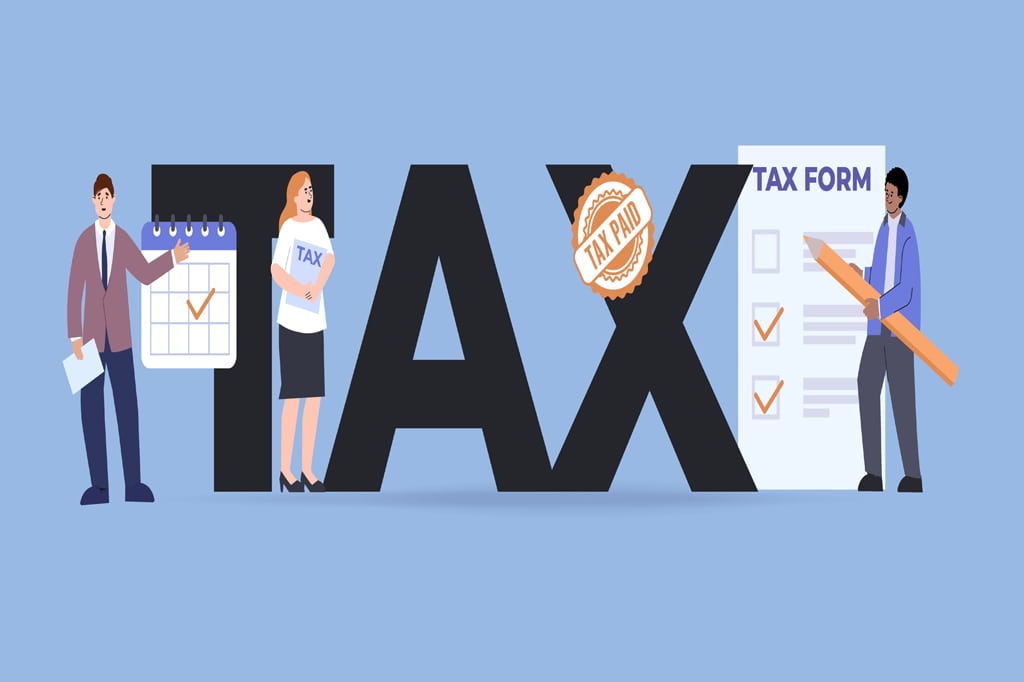What is an income tax return (ITR)?
Who is required to file ITR ? !!
Filing a Return of Income is the process of reporting your income, deductions, and tax liability to the Income Tax Department . Under the Income Tax Act 1961, every individual, Hindu Undivided Family (HUF), association of persons (AOP), body of individuals (BOI), and companies are required to file a return of income if their total income during the financial year exceeds the basic exemption limit. Filing a Return of Income can be done online through the Income Tax Department’s e-filing website or through a tax professional. It is important to file the return accurately and on time to avoid penalties and legal consequences. Return of Income is the declaration of income and tax payable by the assessee in the forms prescribed by the department.
Section 139(1) Compulsory filing of return of Income
Section 139(1) of the Income Tax Act of India mandates that every person whose total income during the previous year exceeds the basic exemption limit is required to file a return of income. The basic exemption limit is the amount of income up to which no tax is payable. Filing a return of income is a crucial compliance requirement under the Income Tax Act of India, and failure to file the same may attract penalties and interest. It includes the following :-
- Company & Firm
- Individual, HUF, AOP, BOI & artificial juridical person having total income > basic
exemption limit without giving effect to the provisions of Chapter VIA or Section
54/54B/54D/54EC or 54F.
- Person, being resident other than RNOR, who is not required to file ROI u/s 139(1) &
who at anytime during the PY, holds, as a beneficial owner or otherwise, any asset located
outside India or has signing authority in any account located outside India; or is a beneficiary of any asset located outside India
- Any person, other than Company or a firm, if during the PY, such person:-
- has deposited an amount or aggregate of amounts exceeding Rs.1 crore
- has incurred expenditure exceeding Rs.2 lakhs for travel to a foreign country
- has incurred expenditure of an amount or aggregate of amounts exceeding Rs.1 lakh towards consumption of electricity.
Due date of filing return of income
- Companies, persons (other than a company) whose accounts are required to be audited are required to be audited and working partners of a firm whose accounts are required to be audited shall file return of income on or before 31st October of AY.
- Assessee required to file transfer pricing report under section 92E (International transaction) shall file their return of income on or before 30th November of AY.
- Any other assessee other than the mentioned above shall file their returns on or before 31st July of AY.
Sec 139(3) – Return of loss
Sec 80 requires return of loss u/s 139(3) is to be filed mandatorily for carry forward of
business losses, capital losses and loss from activity of owning and maintaining race horses.
Sec 139(4) –Belated Return
Any person who has not furnished return u/s 139(1) may furnish the return at any time :-
- On or before 31st December of AY,
- Before completion of assessment, whichever is earlier.
Sec 139(5) –Revised Return
Any person who has furnished return u/s 139(1) or 139(4) may furnish a revised return at any time:-
- On or before 31st December of AY,
- Before completion of assessment, whichever is earlier.
Once a revised return is filed, it replaces the earlier return and revised return can again be revised.
Sec 139(9) – Defective Return
Where the Assessing Officer considers that the return of income furnished by the taxpayer is
defective, he may intimate the defect to the taxpayer and give him an opportunity to rectify the
defect(s).
- The assessee must rectify the error within a period of 15 days from the date of intimation
- If a defect is not rectified within the time limit, the Assessing Officer will treat the return as an invalid return.
Sec 234A-Interest for default in furnishing Return of Income
Simple Interest @1% per month or part of month is payable on the amount of tax payable,
from the date immediately following the due date of filing return and ending on date of
furnishing return or completion of assessment.
Sec 234F- Fee for default in furnishing return of Income
- If the total of person does not exceeds 5 Lakh :- Rs. 1000
- If the total of person exceeds 5 Lakh :- Rs. 5000
Income Tax Slab Rates :-
- For Individuals below 60 Years and HUFs :-
- For the slab of total income which is up to Rs. 250000, slab rate is Nil.
- For the slab of total income which is in between Rs 250001 and Rs 500000, slab rate is 5%.
- For the slab of total income which is in between Rs. 500001 and Rs 1000000, slab rate is 20%.
- For the slab of total income which is more than Rs. 1000000, slab rate is 30%.
- For resident individuals aged between 60 & 80:-
- For the slab of total income which is up to Rs. 300000, slab rate is Nil.
- For the slab of total income which is in between Rs 300001 and Rs 500000, slab rate is 5%.
- For the slab of total income which is in between Rs. 500001 and Rs 1000000, slab rate is 20%.
- For the slab of total income which is more than Rs. 1000000, slab rate is 30%.
- For individuals above 80 years old :-
-
- For the slab of total income which is up to Rs. 500000, slab rate is Nil.
- For the slab of total income which is in between Rs. 500001 and Rs 1000000, slab rate is 20%.
- For the slab of total income which is more than Rs. 1000000, slab rate is 30%.
- For Partnership Firms/LLPs :-
A partnership firm (including LLP) is taxable at the rate of 30% on Total Income.
- For Local Authority :-
Local Authority is taxable at the rate of 30% on Total Income.
- For Companies :-
- Domestic Companies are taxable at the rate of 30% of Total Income.
- Foreign Companies are taxable at the rate of 40% of Total Income.
New tax regime (revised)
In the budget 2020 Government introduced a new tax regime with altered slab tax rates, which allows the taxpayers to pay their taxes at a concessional rate, in sacrifice of certain exemptions and deductions such as HRA, LTA, 80C, 80D etc… Unfortunately most of the taxpayers are discouraged to follow the new tax regime due to finding that the new tax regime is not a feasible option for them. In 2023 Budget Government introduced a revised new Tax regime with some differences such as :-
- New tax slabs :- Tax exemption limit has been increased from Rs 250000 to Rs 500000
Up to Rs 300000 – Nil
Rs 300001 – Rs 600000 – 5%
Rs 600001 – Rs 900000 – 10%
Rs 900001 – Rs 120000 – 15%
Rs 1200001 – Rs 1500000 – 20%
Above Rs 1500000 – 30%
- New Rebate limit :-
Rebate limit increased from Rs. 5 Lakhs to Rs. 7.5 Lakhs.
- Deductions under revised new tax regime :-
- Standard deduction for salaried individuals Rs. 50000.
- Employer’s contribution to NPS.
- Standard deduction on family pension.
- Interest on home loan u/s 24b.
- All contributions to Agniveer Corpus Fund.
- New surcharge rate for High income groups :-
Surcharge applicable for high income assesses with total income over 5 crores reduced from 37% to 25%.





